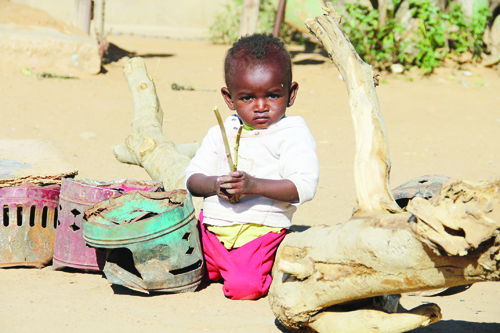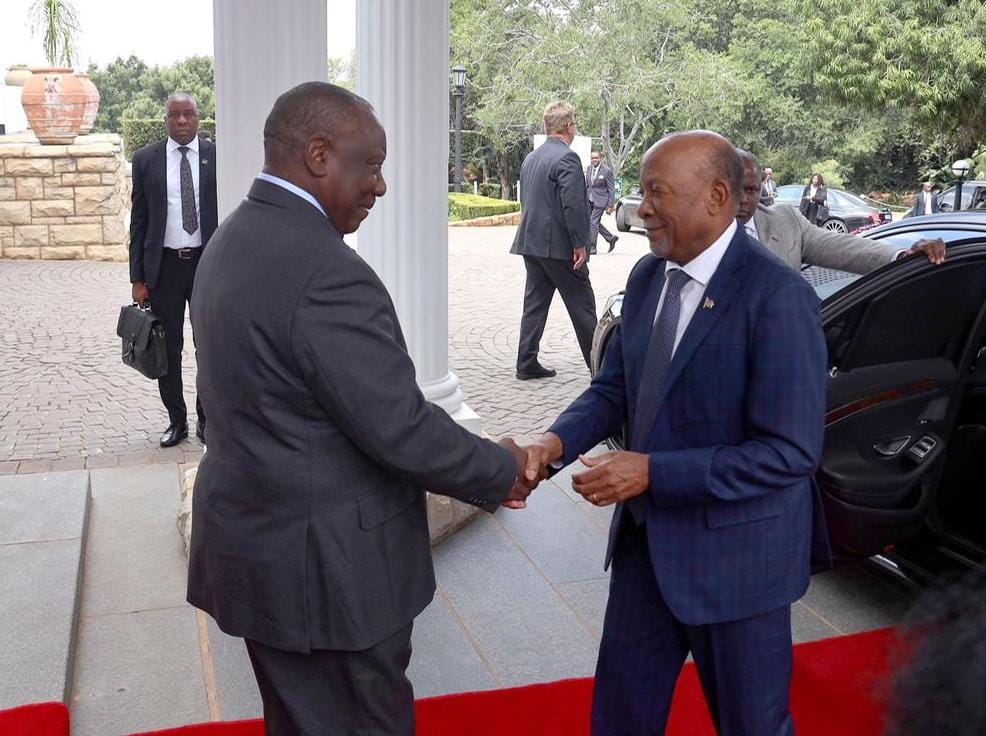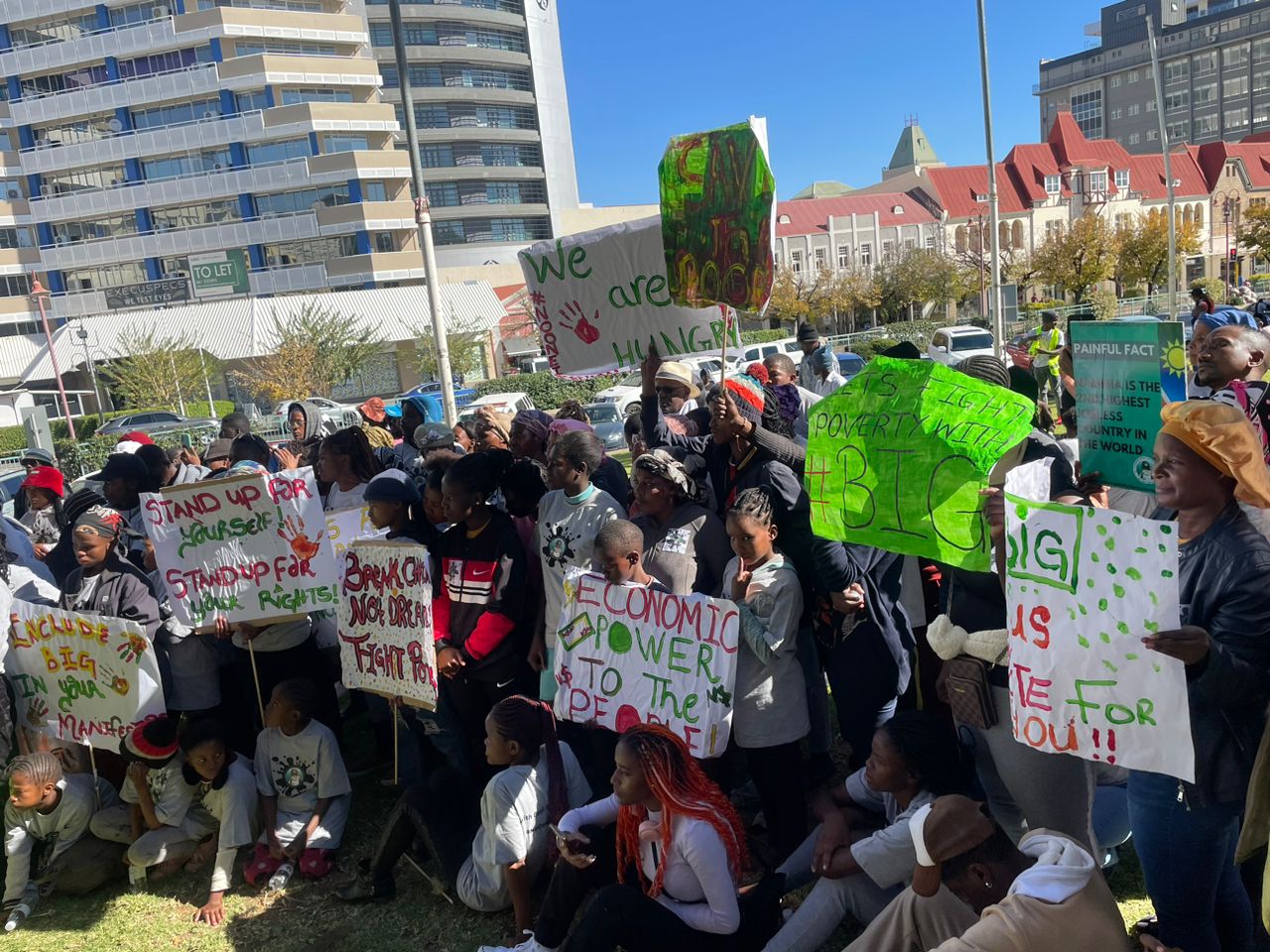A LONE figure stands on a narrow path that runs between a row of lopsided homes built from desert sand at the Osire Refugee Camp.
The camp is located about 200 km from Windhoek in Otjiwarongo district of the Otjozondjupa region.
In the distance, other refugees are celebrating the World Refugee Day but Celista Pukusa from the Democratic Republic of Congo (DRC) says he does not see any reason for joining the party.
Thousands of refugees at the camp had gathered for performances and to hear speeches by officials from the Office of the United Nations High Commissioner for Refugees (UNHCR) and the African Union.
The day also marked the 40th anniversary of the creation of the African Refugee Convention, which emphasises voluntary repatriation across the continent.
Celebrated internationally, the UN says the day is to “recognise the strength and resilience of refugees across the world”, but 14 years after arriving at the camp, Pukusa has been struggling to provide for his family, particularly in the past four years.
“It was good when we came here. The United Nations used to preach about peace and how we would be free one day. But now it is a bad gospel as people are suffering. I will not go there,” he says in reference to the celebrations.
On paper, the Osire settlement has been a great success. In 1998, there were an estimated 20 000 inhabitants in the camp who had fled conflicts in Angola, Burundi, Rwanda, Somalia and the DRC in the early 1990s.
Through voluntary repatriation and resettlement of the refugees, the population has dropped to less than 3 000 people. For the remaining refugees, the camp has a functioning primary and secondary school, a clinic run by trained medical officers and nurses, and a police station with more than 20 officers.
On the surface, it appears everything is going well. But below the surface and in secluded corners of the camp, Pukusa and other disgruntled refugees have stayed at home in defiance.
Refugees claim they are being mistreated and harassed, which has led to a number of riots and escape bids in the past decade, and having been there for long, Pukusa has experienced this first-hand.
Pukusa’s family arrived at Osire when he was a child and had no documents. Just like other children of his age, Pukusa was not issued with a permit.
“Most of us came here when we were young, so we did not do interviews. We were not asked to. But now that we are grown up, this has become a problem,” says Pakusa, who is now married and has a small child. He met his wife at the camp.
In 2010, Pukusa worked as a grade one teacher at the camp’s school.
“After living here for 10 years, we received letters notifying us that we are no longer welcome,” he says, adding that he and many others were arrested on the night of the 2010 World Cup final because of their “illegal status”.
“The police came at night and returned the following day. One pregnant woman gave birth in prison. We were treated like dogs,” he complained.
After a court case in which they were defended by a UN lawyer, Pukusa and the other refugees returned to Osire, but without their work permits.
“Some of us were teachers and when we came from jail, they stripped us of all our rights and practices,” Pukasa further says.
He has not been allowed to work inside or outside the camp for the past four years, and has struggled to provide for his family.
“I am the breadwinner, but I am not able to give my children what they need,” he adds.
Another refugee, who preferred to remain anonymous, said he has been living at the camp for more than 15 years and still has not been given any papers to enable him to work legally.
“Last year, the police came here again, threatening to put us back in jail if we did not have relevant papers. But how are we supposed to have papers when they promise every time to interview us but they never do so? Now they say we are here illegally. My children and I do not have papers, only my wife has. Now I am stuck here at the camp and cannot even go out to look for work,” the man says.
With no closure on any pending deportation, Pukusa and others are living in limbo. “We were taken to court without the UN lawyer. We had no one defending us. They threatened that they were going to deport us, but we are still waiting.”
If Pukusa is deported, he will be forced to leave his wife and child behind. “We live in fear because we don’t know if we are here or there.”
Meanwhile, at the noisy centre of the camp, standing on a podium in front of a busy crowd, the UN High Commissioner for Refugees representative, Lawrence Oba Mgbangson, was delivering a rousing speech commending the success of the camp.
He said: “The Osire Refugee Settlement can be proud to be one of the most well-managed settlements in the world.”
He said that by 2015 their organisation aims to have closed down smaller offices and operations in Botswana, Lesotho and Namibia, among others.
Before the UNHCR leaves Osire and other settlements in Africa, Mushelenga said programmes run by concerned governments, UN agencies and stakeholders, would be established to ensure the continuity of work to cater for refugees in those locations. As the speeches and performances ended in the late afternoon, the audience and guests filed out, walking past a large white banner with a message inscribed in large baby blue letters: “One family torn apart is too many”.
As the official slogan for World Refugee Day 2014, it is ironic that this is the situation Pukusa and others like him are threatened with daily, despite living inside a celebrated refugee camp.
Stay informed with The Namibian – your source for credible journalism. Get in-depth reporting and opinions for
only N$85 a month. Invest in journalism, invest in democracy –
Subscribe Now!






